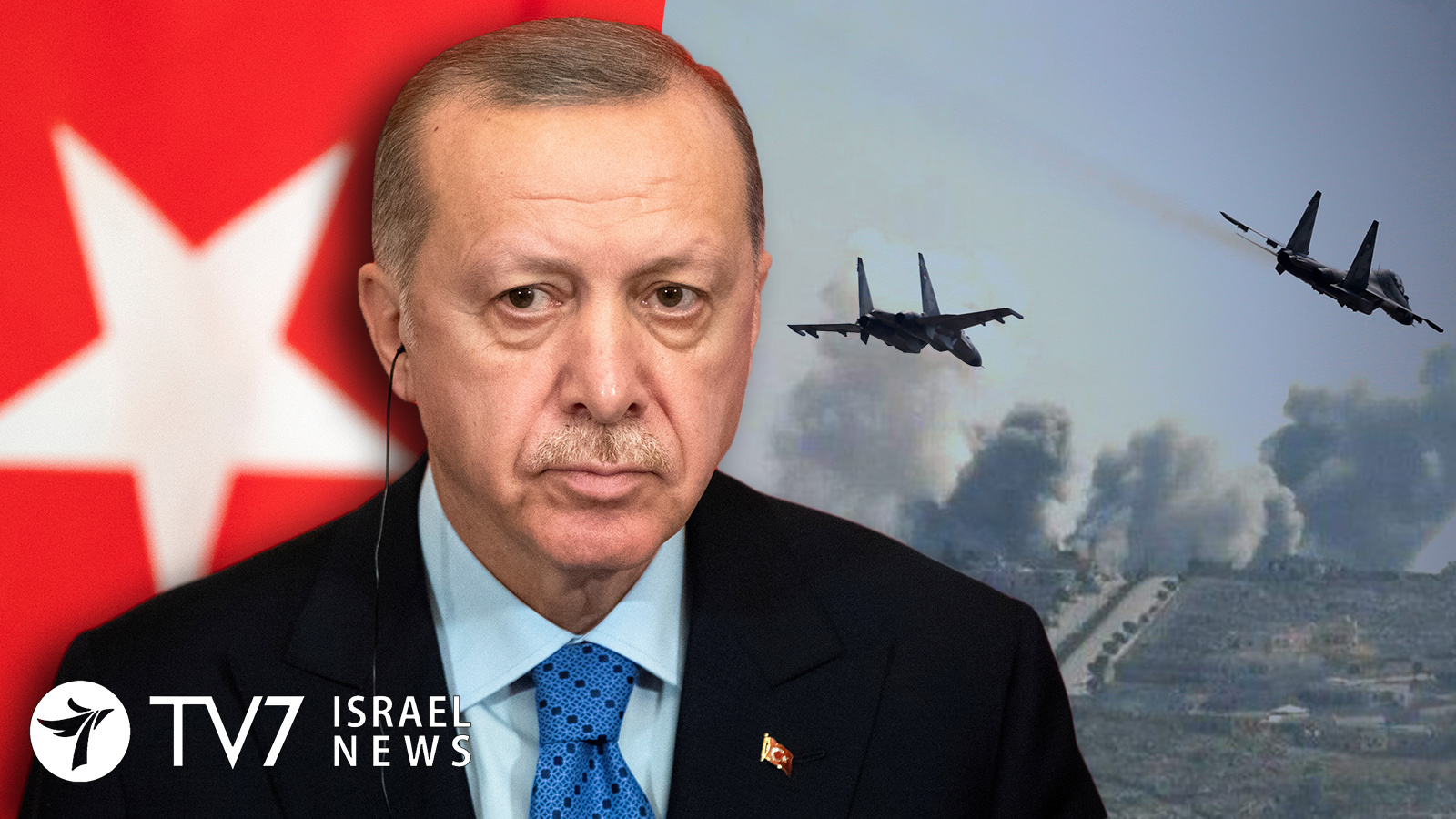Turkish President Recep Tayyip Erdogan warned Damascus, as well as its patrons Russia and Tehran, that he will resume his nation’s cross-border Operation Peace Spring military offensive against Syrian forces if the recent ceasefire is not kept in full.
During an address to members of his ruling-AK party, Erdogan said he expected appropriate “measures” will be taken after having already informed Moscow of several minor violations. “We will keep our word until the end as long as the others show the same sensitivity,” he vowed, while threatening that “if the others do not keep their promise, we will never shy away from giving a much harsher response.”
Army forces loyal to Syrian President Bashar al-Assad are fighting alongside Iranian-backed militias with Russian aerial support. The alleged violations in Syria’s northwestern Idlib Governorate pertain to limited exchanges of fire between the Syrian army and local Jihadist militants backed by Turkey.
Erdogan also spoke about the current migrant crisis between his country and the European Union using inflammatory terms over Greek efforts to thwart an influx of infiltrators. “There is no difference between those images on the Greek border and what the Nazis did. Whatever they did at Nazi camps, you see the Greeks (do the same) on behalf of the West – as if they’re paid public servants,” he said. He also sought to instigate Greece against Western Europe, by mockingly urging Athens to allow the illegal migrants to cross the country into Western Europe, while further insisting that Turkey will continue to push the migrants into Europe until Brussels complies with his demands. “Open the doors and let them go to the wealthy Western countries through your country. Why do you block them like this and inflict Nazi tortures on them?” he said, adding that, “Until all of Turkey’s expectations, including free movement, opening of chapters, updating of Customs Union and financial help, are met in a concrete way, we will continue our current practice at our borders.”
It is important to highlight that while Greek security forces are making every effort to repel the attempted invasion by thousands of illegal migrants, Turkish security forces are thwarting attempts by the migrants to return to Turkey by firing tear gas and use of other methods. The EU has indicated willingess to meet Ankara’s demands within the parameters of a joint statement that was made in 2016. After meeting with Erdogan earlier this week, EU Commission President Ursula Von Der Leyen stressed a commitment to move forward on Turkey’s demands as long as it abides by its own commitments. Von Der Leyen said the discussion was “focused on mapping the areas on which we can work, both in the EU’s interest and in Turkey’s interest.” She underscored that while the EU-Turkey statement of 2016 “remains valid,” the two leaders also considered “how to implement the missing pieces: to map it again, to analyze it, to have a common understanding of what is missing and what is already in place, and then to implement the missing elements.” She underscored that the EU has “expressed very clearly to President Erdogan our commitment to move forward on these issues, provided that this is reciprocal.”
Greek Prime Minister Kyriakos Mitsotakis responded to the EU statement, saying that “Europe must fulfill their promises of support to Turkey so long as Turkey fulfills its commitments. Today I can say that I am more optimistic that we can find a mutual position that will provide mutual benefits for the EU and for Turkey.”
Speaking alongside the Greek Prime Minister, Austrian Chancellor Sebastian Kurtz, voiced an angrier response to the Turkish tactics of sheer blackmail. “Turkey has carried out an assault,” he said, charging that “Turkish President Erdogan is abusing refugees, abusing migrants, abusing people who have been living in Turkey for years and is using their suffering and is using them as a weapon against the European Union.” The Austrian Chancellor then accused Erdogan of “using this tactic to try to blackmail Europe and to force us to our knees; and we are very grateful that Greece and the Greek government is consistently protecting the Greek, and therefore the EU’s, outer border.”
